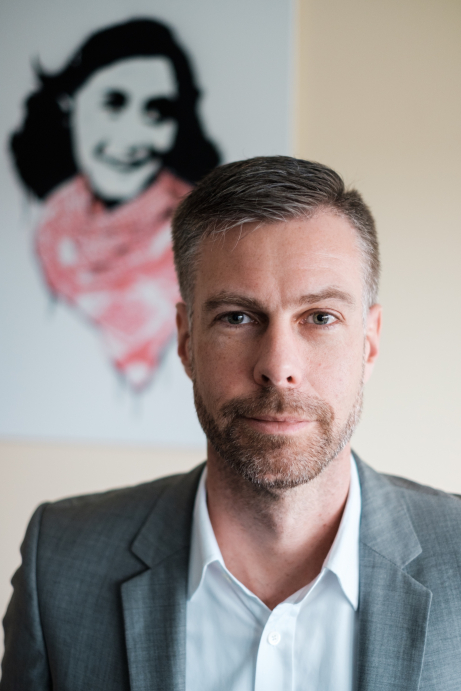
In celebration of Prof. dr. Kai Jonas’ position as the chair Applied Social Psychology with special focus on LGBTQI+ Diversity and Health at Maastricht University, The Flemish-Dutch Network LGBTI Research conducted a mini-interview to hear his thoughts on the current state of LGBTI research.
Door: Laura Baams
In December 2019 you became a full professor of the chair Applied Social Psychology with special focus on LGBTQI+ Diversity and Health. Congratulations! Can you share with us what your plans are for the next 5 to 10 years?
Thank you for the congrats! I am happy to be able to work with a great team in Maastricht; together with my colleague dr. Sarah Stutterheim, we could set up a vibrant lab.
HIV prevention and HIV care in Europe and Asia will remain my main topic, being determined by current research grants. The unique “NL for Cure” agenda of Aidsfonds for example supports great basic, but also social behavioral research into the matter.
I am very happy to be involved in two projects there. Likewise, we could just start a regional approach to HIV prevention in the EuRegio Limburg – this is very exciting! Ageing with HIV, substance use, mental health, especially related to the digital realm are developing topics. Also, I want to translate my more experimental work on diversity into interventions.
What is the status of Dutch LGBTQI+ research compared to international LGBTQI+ research?
Dutch LGBTQI+ research, executed in the Netherlands and abroad, is doing well, but we should not take this for granted. We do not have the millions of dollar budgets like our colleagues in the US of America, thus we need to do more creative and innovative research. We need to continue looking out of the box.
What do you see as the most important challenge for this field?
Like in many fields there are budget cuts, fewer positions at universities and research institutes. The research infrastructure that was built up in the last decades is challenged again.
Successful implementation of biomedical HIV prevention is now high on the agenda, but manageable. Substance use and mental health will become a bigger challenge in the coming years, in certain populations, while others are just faring well.
The issues at stake become more fragmented, sexual orientation and sexual identities less binary: We need to assess individual experiences and translate them into more abstract terms to be able to develop smart interventions, and we need to become better at reaching the “hard to reach” populations.








